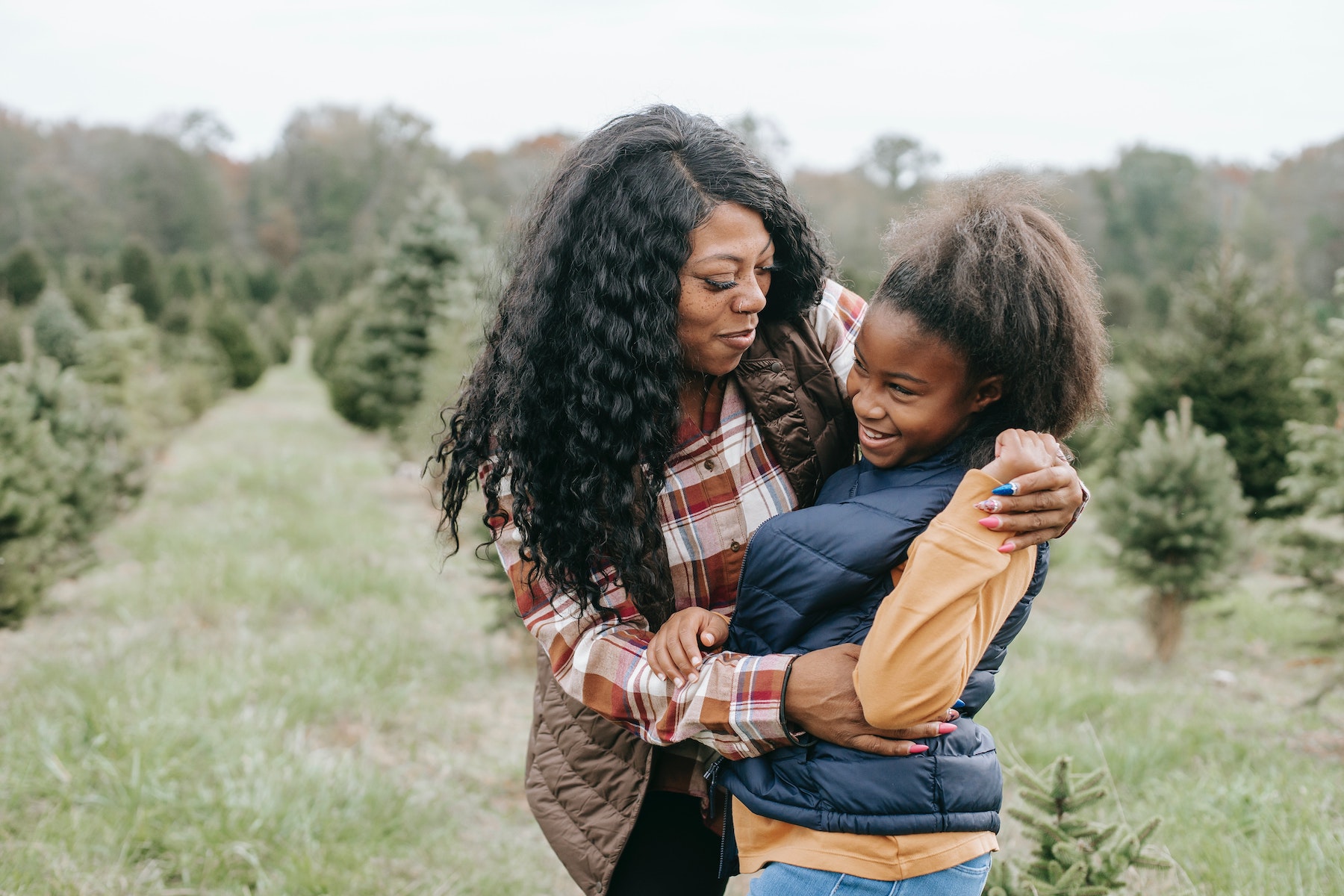
I Gave My Son His First Real Bible
Recently, my oldest, at nine and a half, got his first real Bible. One with book names and chapters and verses included. It wasn’t to mark anything significant, but the more I thought about it, the more I realized this was a significant mile marker in his life, even if the purchasing of it wasn’t prompted by anything noteworthy.
It’s a rite of passage of sorts. At least it felt that way to me. So, I wrote my oldest a letter about what the Bible is and why it matters and what purpose it serves. I wanted him to know this Bible includes complications and frustrations. It prompts questions and conversation. It makes sense…sometimes. It baffles other times. And it seemed right that with this very grown up book, there be a letter that served as a guide—as much as I could offer one to him based off my own experience.
In other words, I wanted to tell him everything I could, as far as I had figured it out. Because the truth is, when it comes to matters of faith, I am learning that unlike other parenting matters, this is not one where I easily take a place of authority. Here, I am a learner alongside my kids. Here, I am figuring it out too. Here is where I share what I have learned, while also acknowledging how little I know.
Maybe you don’t consider the gift of a Bible a significant rite of passage, or maybe you do, but have already determined how you want to talk about this book to your kids. Maybe you don’t feel the angst some of us do over this book and the God behind it and tension we are trying to manage between love and puzzlement, awe and exasperation. Maybe you have it figured out. If so, this may not be for you.
But if you, like me, wonder sometimes how to pass on your reverence and respect and your confusion and your complications about a faith and a sacred text that both captivates you and mystifies you, then maybe this letter will help. It was the best way I knew to put words around something I am still defining my relationship with today. It was the only way I knew how to pass along to my son not what I definitively know necessarily, but what I am in the process of learning. I won’t pretend to know all the answers. But my hope in gifting him the Bible and this letter with it, is to free him from the need to know answers that maybe this book wasn’t written to offer. But instead to equip him to engage in a conversation that started thousands of years earlier and will continue thousands of years after us, all because of an ancient text, written in an ancient language, that somehow and in some way matters to us as much as it does. We don’t always understand. But we read anyway, because we can, and in hopes that someday we will.
So I wrote him this letter, and gave it to him with his Bible, and in case you’re wondering how it went, the answer is: nothing like I thought. He smiled, said thanks, and then asked if he could look up a robot he was interested in on Amazon. So no, not the memory making moment I imagined. But the hope is, that someday he’ll remember what was in there and if something doesn’t make sense, or something interests him or something puzzles him, he’ll feel comfortable enough to talk to me about it, and together we can learn from each other.
The Letter I Wrote My Son
August 17, 2019
Dear Asher,
This isn’t your first Bible. You’ve had different sorts of Bibles since you were a toddler. But all of them were written in story form. It was easier to understand that way. So, it told the storyof creation, the story of Noah’s ark, the storyof David, and the story of Jesus, among others. For a child, this makes sense. Because there were big ideas in the stories you could grab hold of, that taught lessons and that made what sometimes can be a very complicated book, easier to understand.
But today, you get the book itself. You don’t just get the stories in the book, you get the words as they have been read for thousands of years. And it’s different from any other way you have seen or read the Bible before. It may not seem like that big of a deal, but it is. Here’s why.
People have been reading these exact words and trying to understand them and what they mean and what they tell us about God and what they tell us about ourselves for a very long time. And now you are part of a long line of readers and learners and question askers yourself.
But with having your very own Bible, a Bible with books and chapters and verses, and not just stories, comes a big responsibility.
This book was written by all kinds of different people from all kinds of different places in the world across many, many, many years. This book has history, and poetry and teaching. It’s ancient, thousands of years of years old, but what makes it almost magical is that in a lot of ways, it still makes sense to us right now. We can read what it says about people and the way the world works and see that it’s still true about people and the world today.
But also, there are parts you will read and ask big questions about because it won’t make sense in our world. You’ll read words coming from God or stories of different people who were supposed to love God doing terrible things and you will wonder how it all fits. This book will have things in it that will not make sense to you at all. That cause you to wonder and be confused and maybe a little unsure about things you have always thought.
And here’s what you need to know: that’s okay. You don’t have to be afraid of what you find in this book. And you don’t have to be afraid of the questions this book may cause you to ask. Because you aren’t the first to ask these questions, you won’t be the last to ask these questions, and questions are never, ever a bad thing. No question you ask about this book will scare your dad or me, and even more importantly, no question you ask will scare the God behind it all.
The people who have the Jewish faith are known as “people of the book.” The first part of our Bible, what we call the Old Testament, is their entire Scripture. And they love their Bible. They treat it with respect and honor. They put it over their doorframes in their house, and some even wear it on different parts of their body to keep it close to them. And do you know what they do, because they love the Bible so much? They argueabout it. They ask questions with each other about it. They love to talk about it and disagree over it and come up with different ideas about what its verses mean. They love to imagine what God might have had in mind, and they don’t always think there is one right way to read a verse. They imagine there are endless possibilities. That God gave us a bit of a mystery when he gave us this book and we get to spend our whole lives wondering about the mystery.
I want you to remember this as you start to read this on your own. That this book, our Bible, is an invitation to ask questions and have conversations and imagine new possibilities. There could be lots of ideas about what something might mean. And they could all be right.
The other thing we want you to know about this book is that it is different than any other book because we believe God’s spirit lives in the words. There are different ways to understand that, but what we think that means is that God was with the people who wrote this and showed himself in the writing. The Jewish faith talks about the idea of God’s spirit being in the letters on the Bible’s pages, but also in the white space between the letters and words. It almost does seem magical when talked about that way, doesn’t it?
When I think of how long this book has been around, of the different languages it has been translated to, of how many people diedtrying to get this book into the hands of regular people and not just the people who were in charge, of the effect it has had on the entire world, the idea of magic doesn’t sound crazy at all.
But it isn’t just magical because of its history. With God’s spirit living in the words, with the Bible being alive and active as Timothy (a teenage boy who travelled with the apostle Paul and helped spread the message of Jesus) wrote, we believe the Bible still has a message for us right now. We believe it is still telling us a story of how to live, what God is like, and what our part in the world should be. We believe that even in the words that are thousands of years old, there’s a new story inside of them and that we get to figure out what the words mean for our world today.
There really is no other book like it.
But most important of all, and you know this already, what makes the Bible as important to us as it is, is what it tells us about Jesus. Because Jesus, after all, is the BIG idea. The Bible tells us about Jesus and Jesus tells us what God is like. And there is nothing more important for us to know than that.
According to Jesus, God is love. And we know that because the Bible tells us how Jesus lived. Jesus lived and died showing us how much God cared for everyone. For the people who didn’t fit in and the people who did. For those who had money and those who didn’t. For those who were sick and those who were healthy. For kids and grown-ups. For “good” guys and “bad” guys. For leaders and teachers, and for fisherman and tax collectors.For everyone.Jesus showed the whole world God was better than they could have ever imagined. That there was room for every single person who wanted a place with Jesus, and that no one was left out when they were with Him.
That’s the biggest thing the Bible does for us. It tells us what God is like through the life and death and resurrection of Jesus. This is the most important thing the Bible gives us. Clues to what God is like. So, remember that. The truest thing we know about God comes from what we know about Jesus. So, always read the Bible with that in mind; remember that more than anything.
There really is no other book like this, Asher. None. It will show you things about yourself you may not like to see. It will challenge you to treat others in way you may have a hard time doing. It will frustrate you and confuse you and it will calm you and reassure you. It will be a mystery you will never quite figure out, and that’s how it’s supposed to be. If you ever start to feel like you know it all, look again.
And finally, there’s this.
As I am sitting here writing this, I am looking at the parts of a deconstructed robot on our coffee table. There is a set of miniature screw drivers and tiny screws and pieces of plastic that somehow go together and wiring and batteries and a lot of other things I know very little about. You love to take things apart and know how they work. It’s one of my favorite things about you. But the temptation with the Bible will be to treat it like you did one of these old robots. To pick it apart. To dismantle it. To see it like a technical project. To take the life out of it.
But I want you to see the Bible instead like the robots already assembled that I hear moving around in the kitchen. I hear their electronic “voices” and their wheels rolling forwards and backwards, seeming to have a life of their own. I hear them flipping and “laughing” and then I hear you laughing and running and moving and being so taken with the world these robots invite you in.
I want you to see the Bible this way. As something alive, instead of something lifeless you have managed to “figure out,” take apart, and suck the life out of.
Because when you see the Bible this way, when you read the Bible this way, is really is as magical as it sounds.
I am so excited for you and this very grown up step today represents. I know it may not seem like a big deal to you, but it is to us. Your nine years have led up to this day. We are grateful that we live in a time and a place where we have access to the Bible like we do. But we also know the Bible is not a book to be taken lightly. That just because anyone can read it, doesn’t mean everyone is ready to, is capable of picking it up and understanding or appreciating how complicated it can be. But now, you are ready.
And I am proud of you, because I know you are a great learner and an amazing question-asker and that will help you as you begin to read and learn and understand the Bible on your own. I can’t wait to hear what you learn. I can’t wait talk about it with you. I can’t wait to ask questions together as we read this very special, sometimes mysterious, always important, book.
We love you!
Mom and Dad




